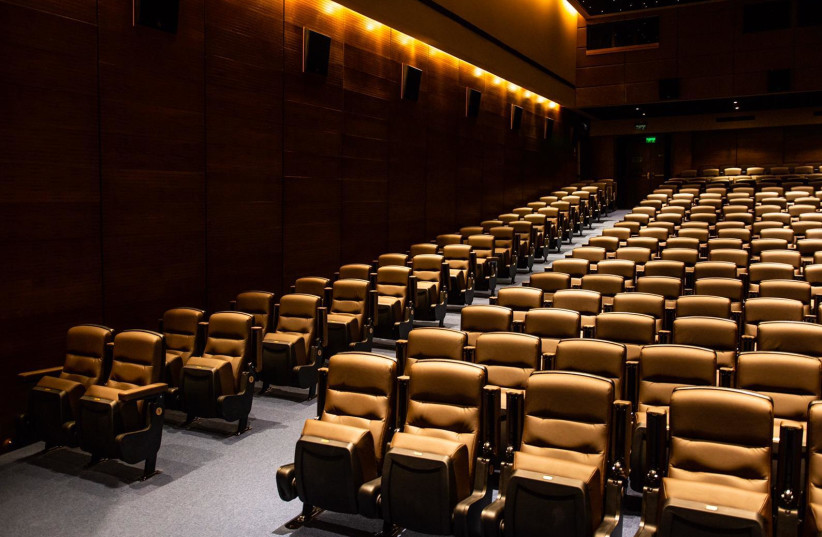When a movie has the word “good” in the title, it’s usually ironic and that is certainly the case in the new Spanish movie, The Good Boss, a black comedy opening throughout Israel on Thursday. The movie is about a guy you would never want to work for – although most of us have, at one time or another, had an employer like this – played with maximum selfishness, pettiness and ego by Javier Bardem.
The movie was written and directed by Fernando Leon de Aranoa, who made the memorable film, Mondays in the Sun, about unemployed dock workers 20 years ago.
He is fascinated by workplace politics and injustices, and The Good Boss, which won the European Film Award for Best Comedy, shows that nothing fundamental has changed in the past two decades and that the social-media era has simply given the boss a couple of new tools.
Javier Barden shines as Julio Blanco
Bardem shines as Julio Blanco (the name means white but he has a very dark side), the owner of the scale manufacturing business he inherited from his father in a small Spanish city. While the comedy and satire are very broad, Bardem keeps you interested because he always finds a way to play every scene in an unexpected way, showing vulnerability when you would think he would be smarmy and vice versa. As the boss, he displays the same crazy energy that won him an Academy Award for his portrayal of the assassin in No Country for Old Men and the charm that wooed and won two American women abroad in Vicky Cristina Barcelona.
The fact that the business sells scales is heavily symbolic, as is the fact that the scale at the entrance to the factory is perpetually unbalanced. The movie is set during the week preceding a planned visit to the factory by evaluators who give out a coveted local award for the best business in the area – and Blanco is determined this his company will win. However, it turns out to be a hellish week for him, as just about everything that can go wrong does go wrong, which is mostly his own doing, and at first, no good deed goes unpunished.

BLANCO SCALES is a very old-fashioned kind of factory where Blanco knows all of his key executives and employees and doesn’t hesitate to meddle in their lives, if he thinks it will be good for business. Miralles (Manolo Soto), his production manager, keeps messing up and Blanco learns he is distracted by marital problems so he talks to both Miralles and his wife, practically ordering her to stop seeing her lover.
Fortuna (Celso Bugallo), a worker who also does jobs in Blanco’s house, has a son who has just gotten in trouble for beating up Arabs with his thuggish friends, and Fortuna pleads with Blanco for help. Blanco responds by getting Salva (Martin Paez), a job in the upscale boutique run by his wife (Sonia Almarcha). Blanco also has eyes for Liliana (Almudena Amor), a new intern – what could possibly go wrong there?
But the biggest thorn in his side is Jose (Oscar de la Fuente), a recently laid-off worker who camps out across from the entrance, holding banners and screaming slogans against Blanco with a bullhorn. Asked what they say, Blanco replies, “What do banners always say? Something bad.”
While some of these storylines play out predictably, others have a few entertaining twists. One of the best aspects of the movie is the way that Blanco presents himself as a friend to everyone and parrots contemporary cliches about workplace morale and everyone being a family, while scheming and using his staff in every way he can.
The director never loses sight of the fact that while his underlings may achieve moments of justice and grace, the scales of Blanco Scales are always weighted in the boss’s favor. The issue of the treatment of Arabs in Spain is raised but not developed.
Bardem is in virtually every scene and obviously the movie revolves around him, but the supporting cast is completely convincing as well. Manolo Solo is particularly good as the constantly frazzled production manager.
If you feel you can still laugh about the way the system grinds down employees then you won’t feel too bad watching The Good Boss.
